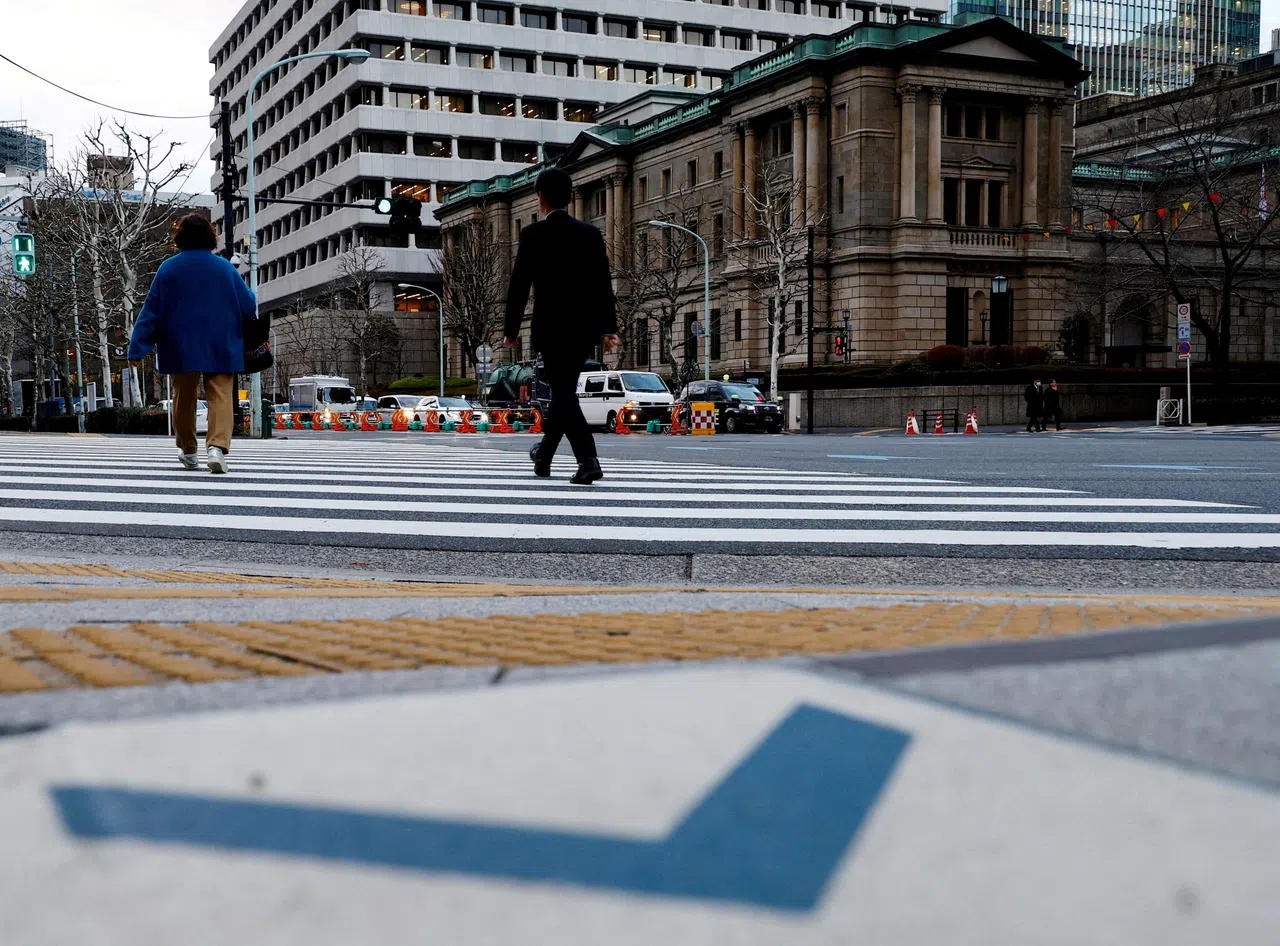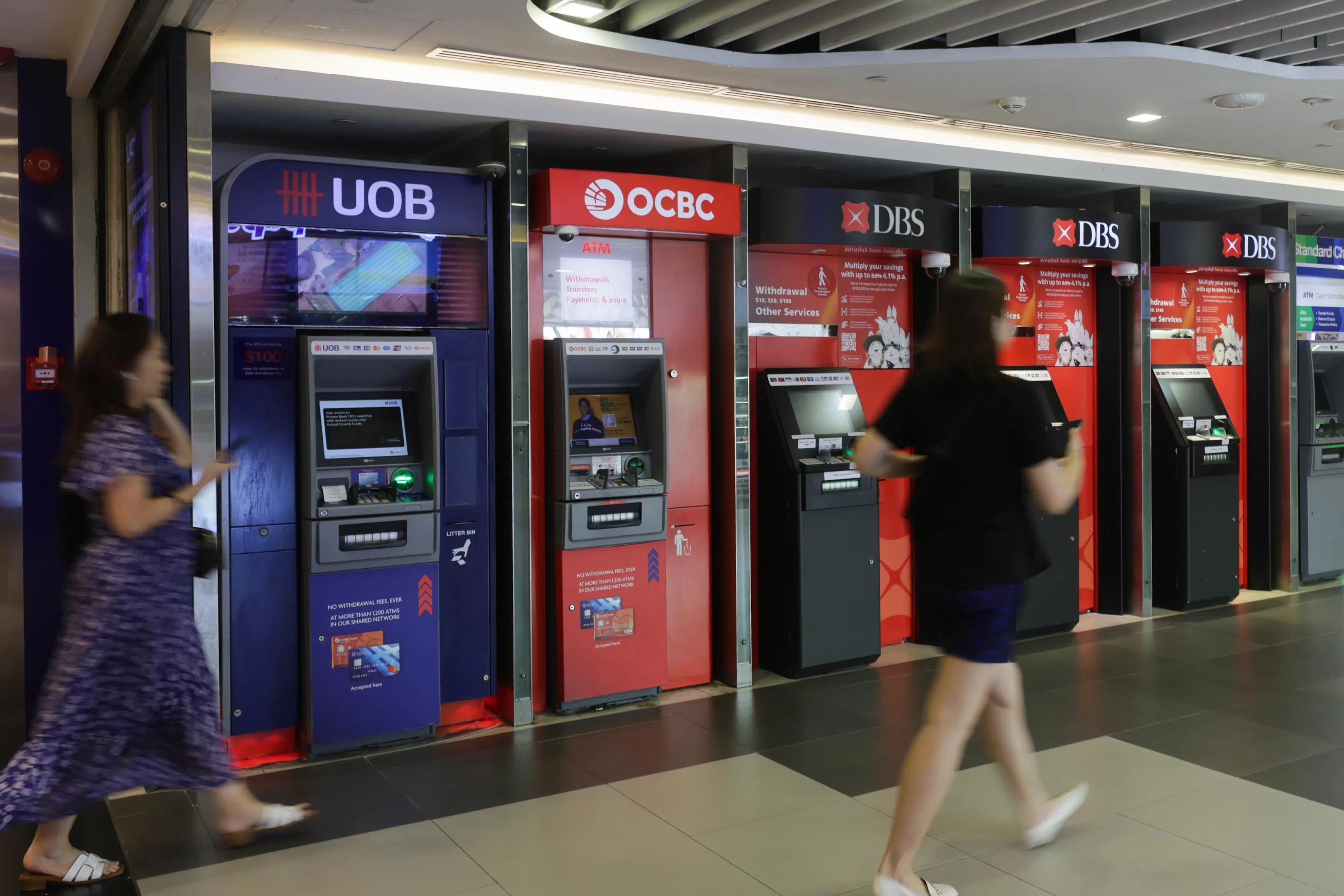INVESTORS in Japan’s government bonds are likely to confront not only potential interest-rate hikes as a bearish factor but also a reduction in the central bank’s vast bond holdings as soon as next quarter.
The Bank of Japan’s (BOJ) gross purchases are estimated to fall below the amount of maturing debt in the July to September period for the first time in 16 years, according to a Bloomberg analysis of the central bank’s balance sheet. The shortfall will be a modest 196 billion yen (S$1.7 billion) but will increase in 2025 even if the central bank maintains its monthly debt buying at about six trillion yen as mentioned in its March policy statement.
Although the BOJ’s bond holdings have often fallen in the last month of the quarter, a decrease for the entire period has not happened since the last three months of 2008. That would pose a challenge to the nation’s US$7.4 trillion bond market that has been used to very low or often negative local inflation and ample central bank support – features that are quickly becoming things of the past.
“If the bond market remains strong, speculation will grow that the BOJ starts to reduce its debt purchases in April,” said Kazuhiko Sano, chief strategist at Tokai Tokyo Securities. “Yields will rise once the BOJ slows bond buying. ”
On top of this projected decline, signs of shift in the BOJ’s position means a reduction in holdings may be even larger than expected. Governor Kazuo Ueda last month said he will consider dialling back bond purchases at some point, and stressed that the BOJ’s approach will be to use short-term interest rates as a policy tool, rather than the huge amount of debt it is piled up.
If the BOJ’s purchase amounts across all tenors are at the lower end of the planned range, that would equal a reduction in monthly bond buying of about one trillion yen, said Naoya Hasegawa, a senior bond strategist at Okasan Securities, citing the summary of opinions from the BOJ’s March meeting.
GET BT IN YOUR INBOX DAILY
Start and end each day with the latest news stories and analyses delivered straight to your inbox.
Central bank chief Ueda was vague about the impact that the BOJ’s ownership has on the Japanese government bond market – it currently holds 54 per cent of outstanding debt. For traders, memories are still fresh of a BOJ report from March 2021 which indicated that any cut in holdings by just 1 per cent of the market would push up the benchmark 10-year yield by 2 basis points.
The anticipated decrease likely would not be enough to meaningfully reduce the BOJ’s stash of bonds. The central bank is keeping in place operations to buy an unlimited quantity of notes at fixed yields and is offering cheap loans to encourage banks to purchase debt.
A decrease in the BOJ’s ownership may not have the same effect on the market as an increase. Investors are typically loss-averse, so a sell-off in the face of falling prices may be steeper, suggesting a drop in the BOJ’s ownership may exert a greater upward pressure on yields.
The central bank will probably stay on the sidelines as Ueda said that its stance is essentially to let the market decide bond yields. Given that Japanese yields are still below inflation, though, most investors are likely to baulk at the levels for sale.
“No matter how large the BOJ’s bond holdings are, they won’t prevent yields from rising when there are a lot of selling flows,” said Sano at Tokai Tokyo. “Current yields are too low considering that the BOJ is expected to raise interest rates again.” BLOOMBERG



